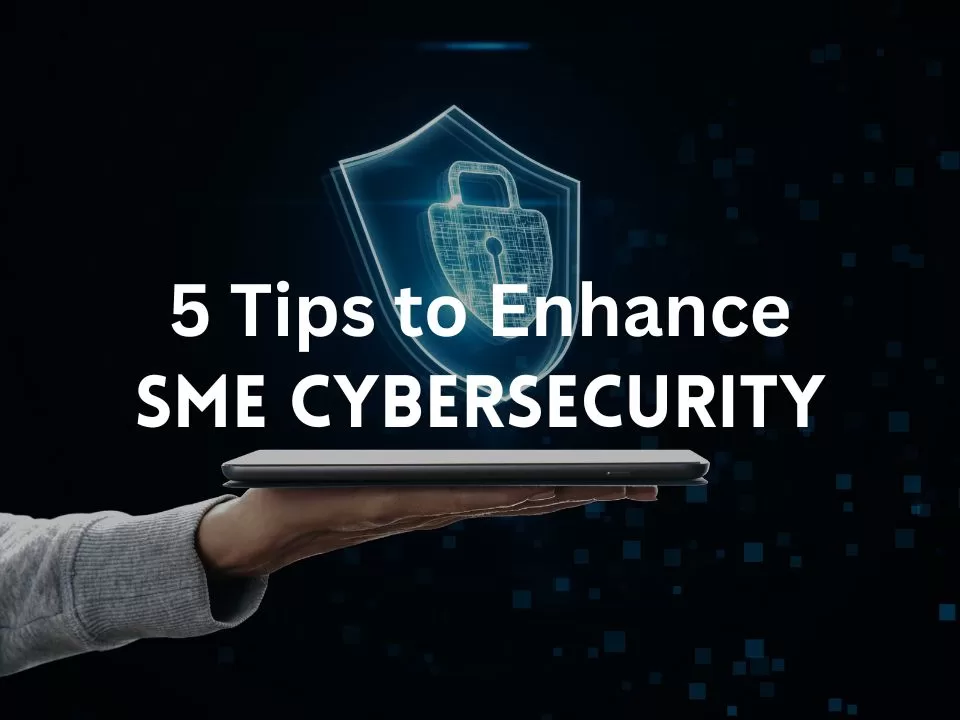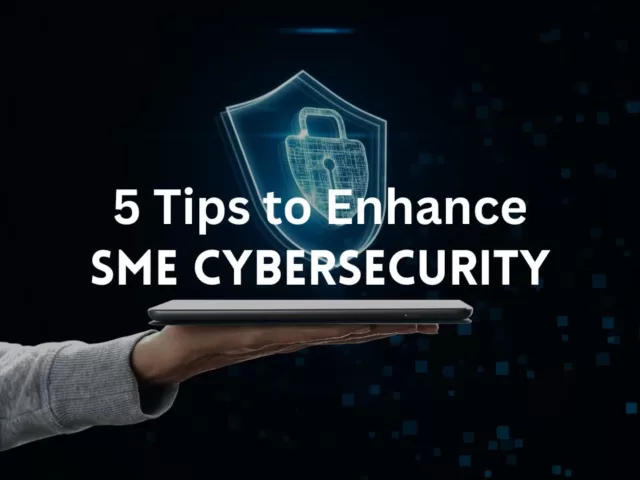
Cybersecurity incidents can lead to significant harm for businesses, encompassing financial losses, theft of funds, and unauthorized entry into sensitive information. Moreover, data breaches expose a broader audience to potential identity theft through the disclosure of personal details.
These adverse outcomes underscore the urgent requirement for Small and Medium-sized Enterprises (SMEs) to strengthen their cybersecurity protocols and initiate the establishment of a robust security infrastructure.
5 Strategic Elements For Robust SME Cybersecurity

Image via Centre For Cybersecurity Belgium
Palo Alto Networks offers 5 suggested cybersecurity tips for SME to consider. These recommendations aim to enhance cybersecurity measures.
1. Holistic Security Assessment
A security assessment is like a thorough checkup for your organization’s digital systems. Its main job is to find any possible weaknesses in your online defenses. Because each organization is different, a security assessment understands that every network may have its own vulnerabilities and weak spots. This lets you customize your security measures based on your organization’s specific needs.
2. Advanced Security Functions In Firewalls
A firewall or a network security system in the cloud can stop attackers and create a genuine zero-trust setup. To guard against tricky attacks, the system needs to use machine learning models that work in real-time to protect against these advanced threats.
3. Network Security Reinforcement Through Endpoint Security Software
Endpoint security software is like a digital guard for your organization, keeping your servers, computers, and devices safe. It acts as a vigilant watcher, ready to notice and stop any suspicious activities or unauthorized access that could harm your devices. It needs to have smart AI capabilities to detect and protect against advanced attacks.
4. Dedicated Cybersecurity Team
SMEs benefit from dedicated cybersecurity teams, whether in-house or outsourced. Serving as digital guardians, these teams shield critical information, defend against online threats, and ensure business continuity. This approach ensures continuous vigilance, timely incident response, and proactive security measures tailored to the organization’s specific needs.
5. Security Awareness Training
Training your employees to be aware of security is a crucial defense for your digital protection. It gives your team important skills like creating strong passwords, identifying phishing emails, and using the internet safely. This turns them into vigilant protectors of your digital assets.
Organizations with cyber resilience can sustain essential services during a cybersecurity incident by having a strategic plan for operating under compromised conditions. Those with a comprehensive grasp and committed strategy for resilience will outperform competitors in handling cybersecurity incidents, reducing business disruptions, preserving customer trust, minimizing the time for recovery, and lowering the overall breach cost.










